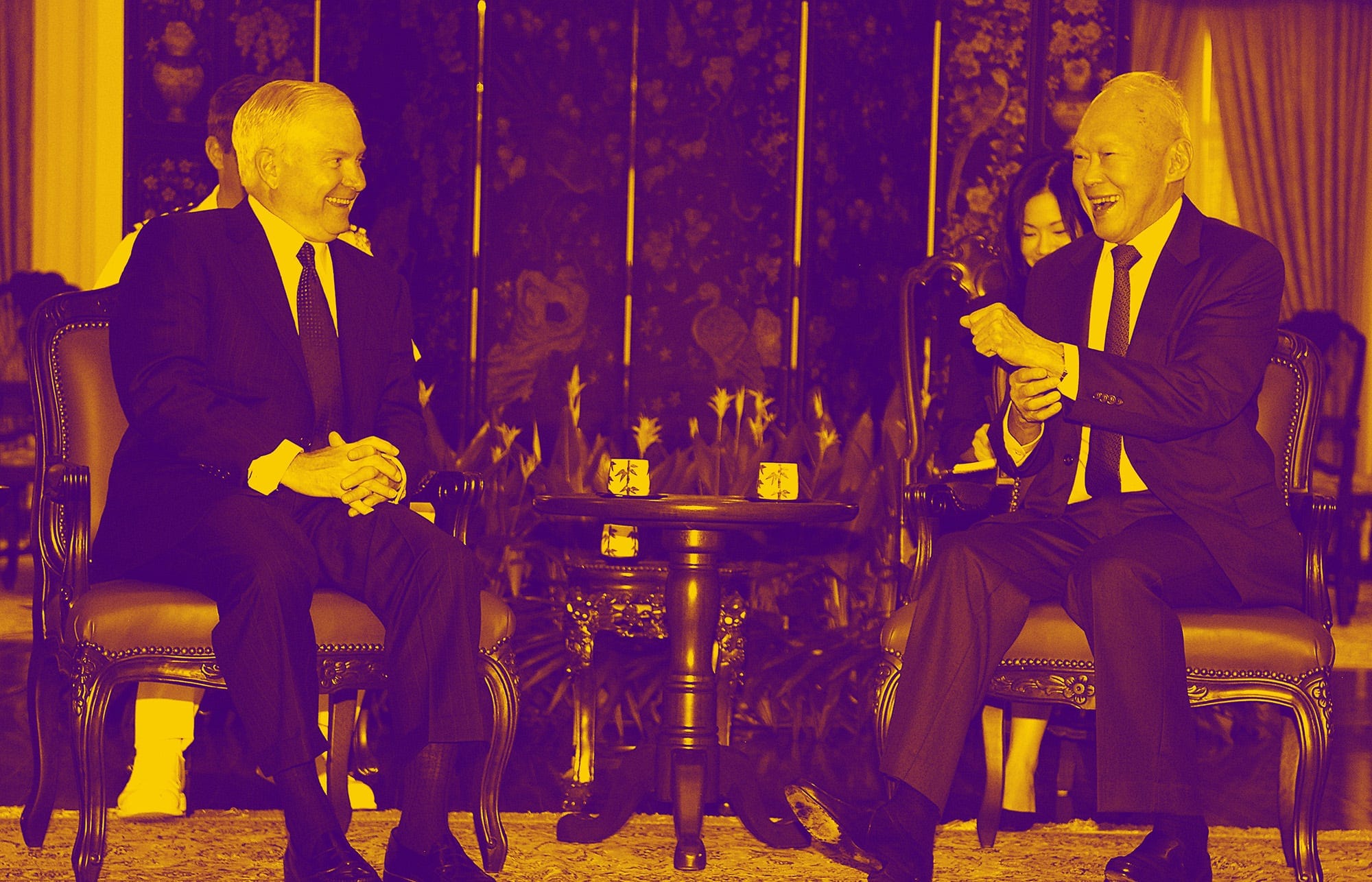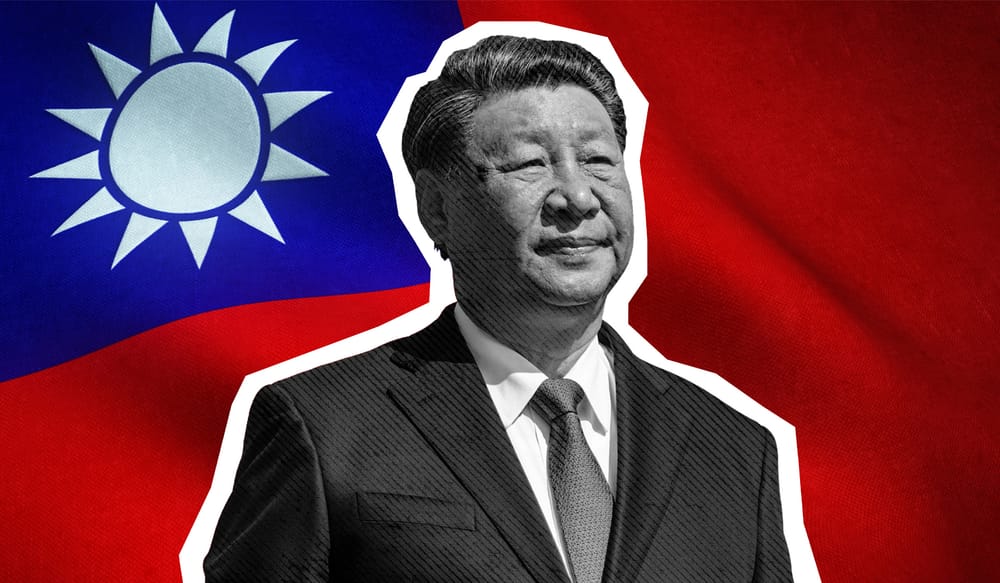The two gentlemen exchanging laughs in the lead photo to this article are, of course, Lee Kuan Yew himself and Robert Gates, then Defence Secretary of the United States. The photo was taken at the Shangri-La Dialogue in 2007 - an inter-governmental security forum organized in Singapore since 2002. Yet, despite prominence of the event a notable absence has been recorded during the past decade - China.
Chinese authorities shunned the annual gathering and have not sent any high-ranking officials to it for eight long years – until today.
In yet another display of diplomatic insensitivity Beijing, all of a sudden, decided that the meeting in Singapore is worth attending after all. It wasn't particularly worthy of their attention, it seems, until the regional matters have deteriorated - largely due to their unilateral actions in recent years - to a point they need to show up and likely make another hardly believable call for peace and cooperation.
If there was ever a textbook on how to alienate everybody around you, these and other moves China has been making in recent years would be its highlights.
The Ant and the Elephant
Unlike in the children's story it wasn't tiny Singapore but the behemoth of China that sought help, only just opening to the world under Deng Xiaoping's leadership in the late 70s.
Deng visited the Lion City in 1978 (and later, in 1992), drawing inspiration from its success as the Chinese-majority state which had managed to elevate itself out of poverty. Surely for much larger and resource-wealthy China the future could be as bright – or brighter.
At the same time Singapore served as an example of how political control can be retained without sacrificing economic progress. Or, in fact, how it could make this progress even faster. It proved to Deng that there's no need to adopt Western models of governance – which could threaten China's stability – to achieve prosperity. And so dozens of Chinese delegations followed in subsequent years, with an aim to learn how Singapore manages its economic and social affairs, contributing greatly to the Middle Kingdom's impressive rise in the next four decades.
It is safe to say that without Singapore's involvement, China would have not become so wealthy and powerful so quickly.
Pride and ingratitude
Despite this mutually beneficial cooperation, its culminating point - the launch of Suzhou Industrial Park in 1994 - turned out to be a sour experience and a sign that Beijing has failed to absorb all the lessons from its tiny counterpart.
The joint venture was supposed to help transfer Singaporean managerial knowledge to mainland administration, in exchange for a majority stake in the project.
Unfortunately, while the Chinese were happy to ingest the valuable know-how, they weren't all that happy to let outsiders benefit from resulting business. Suzhou city authorities preferred to support a competing industrial park they had a majority in. As a result, the project started in good faith and at the height of mutual relations, turned out to be a loss-making venture until the city-state reduced its stake in it, making China the majority holder. Miraculously, SIP started turning a profit the following year.
Chinese were willing to learn how to do business and make money - but would happily sacrifice the relationship once any immediate benefits were realized. This has become a pattern in their foreign policy towards everybody in the world.
Today, when they found themselves under pressure from the US, they are starting to make calls for multilateralism and suddenly willing to make appearances at events they ignored in the past - or organize their own (like the Conference for Dialogue of Asian Civilizations).
At no point in the past years has it dawned on them that it might be beneficial to cultivate genuinely good relations with other countries because having friends may turn out to be valuable at some point in time.
For all their supposed strategic thinking, the idea of "Chinese planning ahead for decades or centuries" they have proved to be remarkably short-sighted. And repeatedly so.
Their mentality is not that of Singapore - an international city, a global hub of trade and business, welcoming people and companies from around the world - but rather that of the disgraced Qing dynasty. China remains proud, suspicious and condescending, willing to engage with the world only if it is clearly beneficial to it (read: rarely and on its terms).
Nobody can afford isolation
Naturally, many people will raise the point that Singapore and China are vastly different countries. One is a tiny city-state, situated on an island - easy to manage and control. The other is a 1.4 billion strong nation - the largest in the world - sprawling across 9 million square kilometers of land.
Singapore is resource poor, it doesn't even have enough drinking water to provide for its population, so it seems obvious why it has to play nice with everybody else. China, on the other hand, is huge and wealthy, a target of many who would like to get a share of its riches.
That said, if China could have modeled its internal governance on Singapore why shouldn't it do the same for external relations?
Being more accommodating and considerate comes at no expense. It doesn't mean that China should open its borders, invite millions of foreigners in or indulge the Western ideals of unbridled free speech. It's not a binary choice.
Singapore is one of the safest and most prosperous places in the world. It is also one of the most exposed to external threats. And yet, even as many powerful Western countries would disagree about many aspects of its governance, it is universally respected - and liked. And sympathy is an important element, as it is inextricably intertwined with trust. We trust people we like - everything else is just business. Singapore is trusted because it never fails - and never tries to take advantage of anybody else.
If China is unwilling to add a bit of humility to its foreign policy and do things that are right not only the things that are immediately beneficial to it, it will struggle to find friends - and allies.
And while it may think it doesn't need any, it was precisely the same conviction that pushed it into decline 150 years ago. The only difference is that today a paranoid, controlling and yet gradually more complacent global power could create dangerous ripples for the entire world. So for the sake of it - and itself - China should once again turn to the little Southeast Asian island for guidance.
Nobody can expect Beijing to listen to Donald Trump, but it would be great for everybody - including China - if it once again listened to lessons of Lee Kuan Yew.









